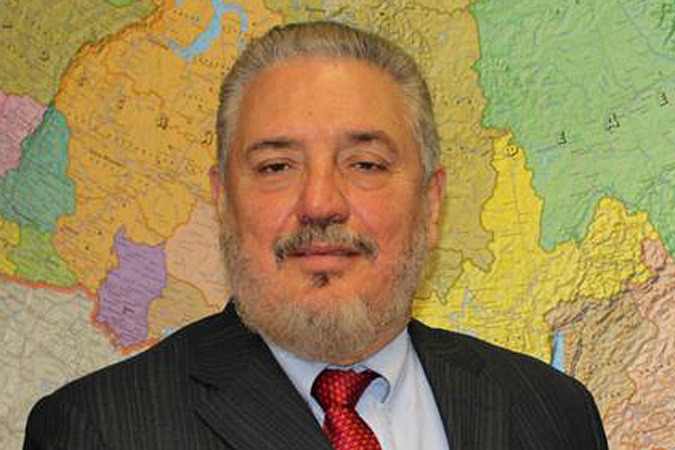
In Russia, Fidel’s son launches book, receives award
Fidel Castro Díaz-Balart, son of Cuba’s former president and scientific advisor to the nation’s Council of State, attended the launching of the Russian-language book “A Brief History of Cuba,” last week, the Cuban news agency Prensa Latina reported.
The book was published by the Moscow State Institute of International Relations, under the imprimatur of the Etnosocium Publishing House.
Castro said that his country is grateful for Soviet and Russian support since 1959, and, at a moment of threats and sanctions from the U.S. and other Western nations over Crimea’s allegiance to Russia, he reiterated Cuba’s solidarity with Moscow.
“We feel especially proud of our relationship with our brothers at a time when sanctions and threats are resurfacing,” he said. Paraphrasing a Russian slogan of the 1960s, he redirected it to his hosts. “Russia is not alone!” he said.
Russian legislators, the director of the Americas Department at the Ministry of Foreign Affairs, Aleksandr Chetinin, ambassadors from Latin American countries, and more than 100 students and professors from the institute attended the ceremony, according to Prensa Latina.
Three weeks ago, Castro was awarded an honorary doctor’s degree and a medal of merit by the Voronezh State University (VSU) in central Russia. The awards were presented to him Friday (March 28), the Russian newspaper Komsomolskaya Pravda reported.
Castro studied at VSU’s Faculty of Physics for two years (1968-1970) after graduating from Kharkov State University in 1968. According to VSU, he studied under the name “José Raúl Fernández” but everyone there knew him as “Fidelito.”
After VSU, Castro continued his studies in nuclear physics at Moscow State University, where he graduated with honors in 1974. From there, he went to the Joint Institute for Nuclear Research at Dubna, outside Moscow. In 1978, he gave his doctoral dissertation on nuclear energy at the Igor V. Kurchatov Institute and received a doctor’s degree in nuclear systems.
From 1980 to 1992, Castro worked as executive secretary of Cuba’s Atomic Energy Commission; from 1984 to 1985, he headed the Department of Exact Sciences at the Cuban Academy of Science. At present, he is scientific advisor to the President of Cuba.
(Photograph of Fidel Castro Díaz-Balart is from Komsomolskaya Pravda.)


